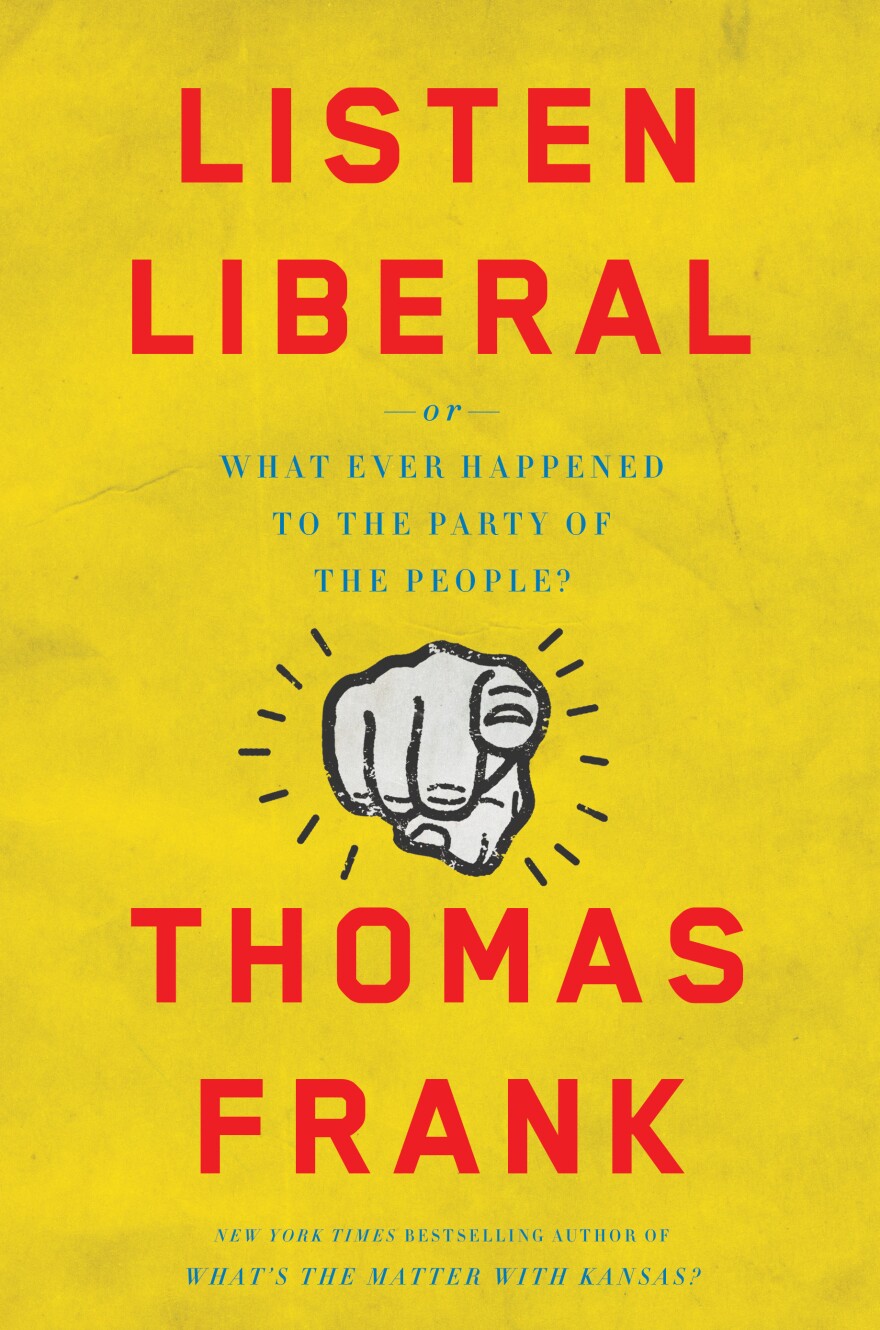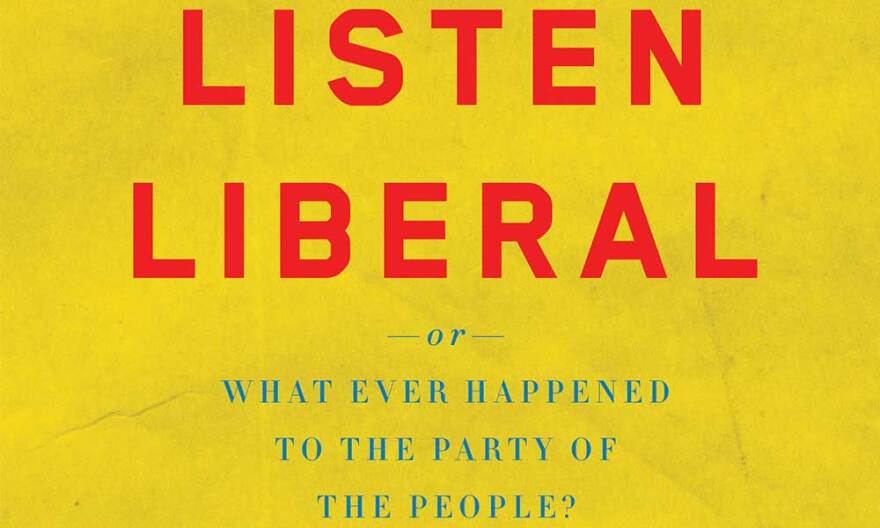The author who several years ago asked "What's The Matter With Kansas" is back with a new book and, this time, he takes up an unlikely subject: his own political party.
In his latest book Listen, Liberal, Thomas Frank examines how the Democratic party has shifted from what Frank refers to as the party of the people to the party of the professional class. It’s a move he says began in the 1970s.

“They weren’t interested in working class people anymore. They were interested in professionals and professionalism. This entirely different stratum of people. That’s both who they look to as their main constituency, who they understand as the people who are reshaping the country—the class that history favors, the professionals. And it’s also who they are,” Frank says. “If you look at Barack Obama or Bill Clinton or Hilary Clinton or any other Democratic leaders in recent years they’re all people whose rise was made possible, whose prominence was made possible by education and by their membership in the professional class. These are all people who were basically plucked from obscurity by higher education.”
Frank points out that although politicians have pointed to education as a way in which people can elevate themselves socially, it’s really come down to having the right kind of education. And the right kind of education most often means East Coast, Ivy League. Frank says that the Obama cabinet is a perfect example of this and that it stands in stark contrast to the cabinets of previous presidents.
“When people talk about government by intellectuals or government by experts, the example of where that worked is the Franklin Roosevelt administration. He had the famous Brain Trust, and it was the Depression, and everybody worked really hard, and it was a great success,” says Frank. “If you look at the people that he had in his cabinet and the people that were advising him, they were highly intelligent people. But they often came from really out of the way places. Small town bankers from Texas or Utah. Or editor of a farm newspaper from Iowa. Highly intelligent people but not the run-of-the-mill product of Ivy League schools. That was not what he was after. But that seems to be how Barack Obama has chosen his associates.”
Frank examines several figures from the Democratic party in his book, including one that many Democrats revere today, Jimmy Carter. But Frank says that Jimmy Carter wasn’t the man that some think he was while in the White House.
“Carter is, in some ways, where it all started. Carter was no liberal. In fact, he was one of these democrats that didn’t like the word liberal; that didn’t like to call himself that. He did some of the first big deregulations. And also the first big tax cuts for the rich—in his case capital gains tax cuts. That was sort of the beginning of it all. The big transition I think happened in the 1970s. This was when the Democrats decided they were going to divorce themselves from big labor, and they were going to divorce themselves from the New Deal,” he says. “The sort of flower of that process was Bill Clinton.”
And Bill Clinton, Frank says, is hardly a liberal either.
“When I was writing Listen, Liberal, I would ask my friends, ‘We’re all supposed to like Bill Clinton, and we’re supposed to look back at his presidency as this great time.’ And I would ask my friends, ‘Can you remember what he did that we’re supposed to be proud of? That we’re supposed to think is really awesome?’ This was a harder question than you might expect. It was kind of a parlor game,” he says. “People had trouble coming up with the answer for that. And, ultimately, it comes down to two things that people remember: One is that the economy did well towards the end of his administration. The other is the crazy partisan battles with Republicans. Those just drove people crazy. It was so insane, the impeachment and everything. People sort of naturally took his side because they thought it was so unfair, what was happening. But, other than that, not much.”

In the current presidential race, the Democratic party is faced with two candidates who represent two different visions of what has become of the party. Hilary Clinton has come to represent what the party stands for in the contemporary climate while Bernie Sanders stands for an older version of the party. Some younger Democrats have even voiced concern that the press has a distinct bias toward Clinton and against Sanders. And Frank says that bias isn’t imagined. Sanders represents a threat to the establishment and Clinton is pure establishment.
“You’ve got people whose entire career is caught up with Hilary Clinton being the next president, if not the leader of the party. For Bernie Sanders to be the nominee would disrupt that entire structure,” Frank says. “Who are the Democrats now? Who do they answer to? Who do they understand themselves as? And the answer is the professional class. And for the people who edit these newspapers, and most importantly, read these newspapers, Hilary Clinton is them. She’s a part of their cohort. She is their classmate. She is someone very familiar to them. It’s just really, really basic class solidarity.”
Thomas Frank’s latest book, Listen, Liberal: Or, Whatever Happened to The Party of the People? is out now. Frank will appear at Watermark Books on Wednesday evening.
--
Jedd Beaudoin is the host of Strange Currency. Follow him on Twitter @JeddBeaudoin.
To contact KMUW News or to send in a news tip, reach us at news@kmuw.org.



